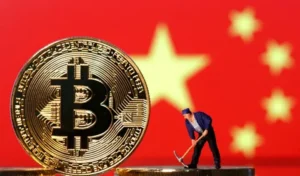The Chinese government issued new regulations on the night of 2025 that severely restrict the circulation of cryptocurrencies in mainland China. China has attacked China’s Tightening Crypto significantly before this. Do other governments that oppose cryptocurrency look to China as an example to follow?
China Strengthens Crypto Regulations
China further strengthened its crypto legislation on December 31, 2024. The foreign exchange regulator is urging financial institutions to identify and prohibit cross-border cryptocurrency transactions. Banks will now use the identification of participants, the source of funds, the frequency of trades, and other variables to identify potentially dangerous financial behavior.
The regulation’s formal goal is to control dangerous financial behavior. According to the State Administration of Foreign Exchange, crypto transactions are associated with dangerous financial behavior. Transactions involving underground banks and cross-border gambling also fall under the restricted category.
China’s Crypto Crackdown Escalates
Cryptocurrency transactions and gambling have a new level of risk due to the fact that banks will gather and disclose the information of individuals and organizations participating in those transactions. The parties concerned may now encounter unwelcome government scrutiny, service denials, and possible legal issues on the road.

Many important companies and entrepreneurs have already left China to establish their enterprises elsewhere, and the new laws might make an already difficult situation even worse for the country’s cryptocurrency sector. Binance and Justin Sun, creator of Tron, are two prominent examples. Binance is the top cryptocurrency exchange in the world.
While the most recent rules are consistent with the prior limitations imposed by the Chinese government, it is highly probable that future crypto legislation in China will be even more antagonistic toward digital assets (except CBDCs). The Chinese anti-crypto policies shook the crypto industry globally, affecting regions beyond mainland China.
China’s Crypto Crackdown Affects Global Market
The Chinese government has been suppressing the local cryptocurrency sector for quite some time. Despite appearances to the contrary, the domestic limits significantly impact the worldwide crypto sector. Several Chinese cryptocurrency regulations have impacted the international Bitcoin market. China was the global leader in cryptocurrency for a while. Launched in 2011, BTC China was the first cryptocurrency exchange.
One of the most popular Chinese web businesses, Baidu, began accepting Bitcoin as payment in 2013. The following year saw the establishment of Bitmain, a revolutionary Chinese cryptocurrency mining firm. Cryptocurrencies’ promise of anonymity and autonomy lured people toward rising totalitarian tendencies. Because it threatened the state’s hegemony and control, the government obviously couldn’t have kept this technology around for much longer.
China’s Crypto Stance Influences Global Bans
China does not openly oppose decentralized digital money, nor is it responsible for the global crackdowns on cryptocurrency. However, for governments that oppose cryptocurrency, this world powerhouse may serve as an example to follow. Does it meet the requirements? Several months before China did so in 2021, Turkey outlawed cryptocurrency payments. Back in 2020, Egypt erected legal hurdles to cryptocurrency mining and trading.
The Algerian government outlawed cryptocurrency-related activities in 2018. At the same time as China began moving toward a complete China’s Tightening, Morocco also prohibited crypto trade. The Moroccan central bank is contemplating the legalization of cryptocurrencies in January 2025. In 2014, Bangladesh joined Bolivia and Ecuador in banning cryptocurrency.
FAQs
How do these regulations impact cryptocurrency transactions?
The regulations aim to control dangerous financial behavior associated with cryptocurrencies, including transactions involving underground banks and cross-border gambling.
What risks do cryptocurrency transactions face under these new regulations?
Banks are required to collect and disclose personal and organizational data involved in cryptocurrency transactions, increasing the risk of government scrutiny, service denials, and possible legal issues for participants.
How does China's stance on cryptocurrency affect global markets?
China's ongoing crackdown on its domestic cryptocurrency sector has significant global repercussions, as it has historically been a major player in cryptocurrency markets, affecting everything from Bitcoin to mining operations.
Has China influenced other countries' crypto regulations?
Yes, China's crackdown has set a precedent for other governments opposing cryptocurrencies, with countries like Turkey, Egypt, Algeria, Morocco, Bangladesh, Bolivia, and Ecuador implementing their own restrictions or bans on crypto activities.

